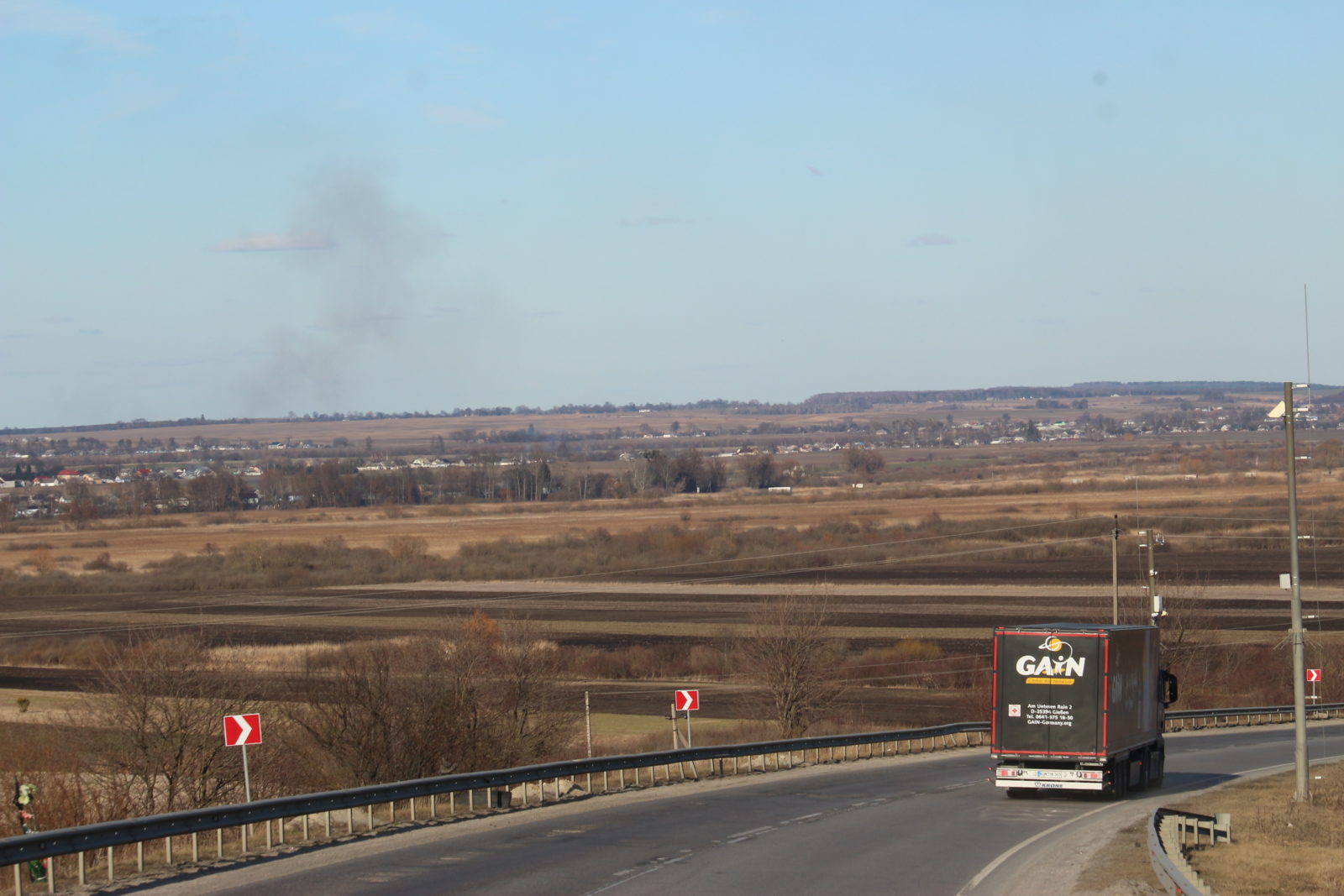

Ever since the start of the war in Ukraine, there has been an increase in domestic abuse and violence against women, brought about by both significant others and Russian soldiers during the occupation. Since many victims do not have relatives or friends with whom they stay with, they and their children are often left traumatized and desperately in need of care.
In the Kyiv region of Ukraine, there are currently five shelters set up to house women who have suffered from assault. Here, they can live for free and take time to recover and rest for one to three months with their kids. The shelters aren’t marked on maps but are secretly disclosed at church by pastors to women in need. The location is classified in order to ensure their safety.
The ultimate purpose of these shelters is to bring emotional, psychological and spiritual healing to women and children and to help them start a new life. They can accommodate up to 15 people and provide women with free access to teachers and psychologists as well as help in finding jobs. Lawyers are also available if they need helping filing a lawsuit or filing for divorce or alimony payments for children.The women do their own household chores, cooking, cleaning and washing.
Since the structures aren’t funded by the government, our local partners decided to take on the responsibility of upgrading some of these shelters in order to better serve women who have experienced abuse and hardship.
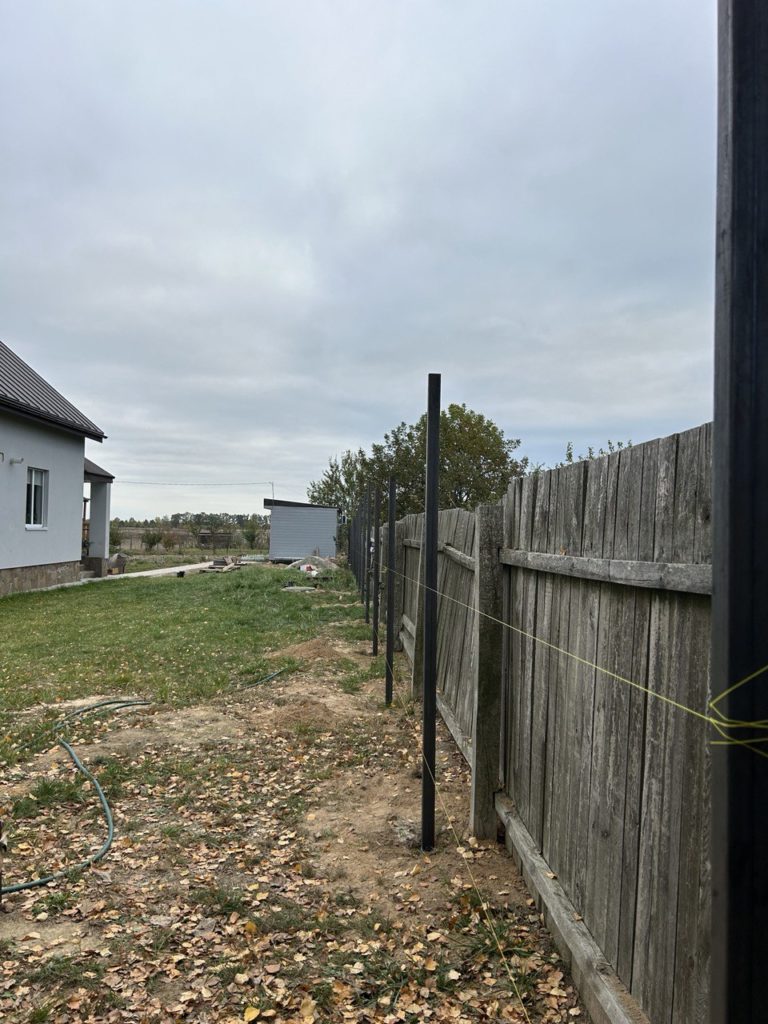


Alongside our local partner, GAiN helped fund a playground for the children, a new fence to ensure the safety of the women living in the shelter and a gazebo for conversations held outside in the fresh air. Since the shelters have limited rooms, the gazebo serves as an alternative space for important conversations or meetings with a psychologist.
It is our hope that these shelters and their new structures provide not just a safe haven, but also a crucial support system for women and children in need of healing after enduring violence and trauma. Our team at GAiN remains committed to empowering and restoring hope to those affected by the horrors of war.

Since February 2023, we have been helping those affected by the disastrous earthquake in Morocco.
Rather than spreading ourselves thin and delivering a small amount of aid to many people, we have focused on several small villages that are tucked away in the High Atlas Mountains. These villages are located in cooler elevations so we have prioritized the provision of shelter and warmth, distributing tents, blankets, latrines and emergency and transitional shelters.
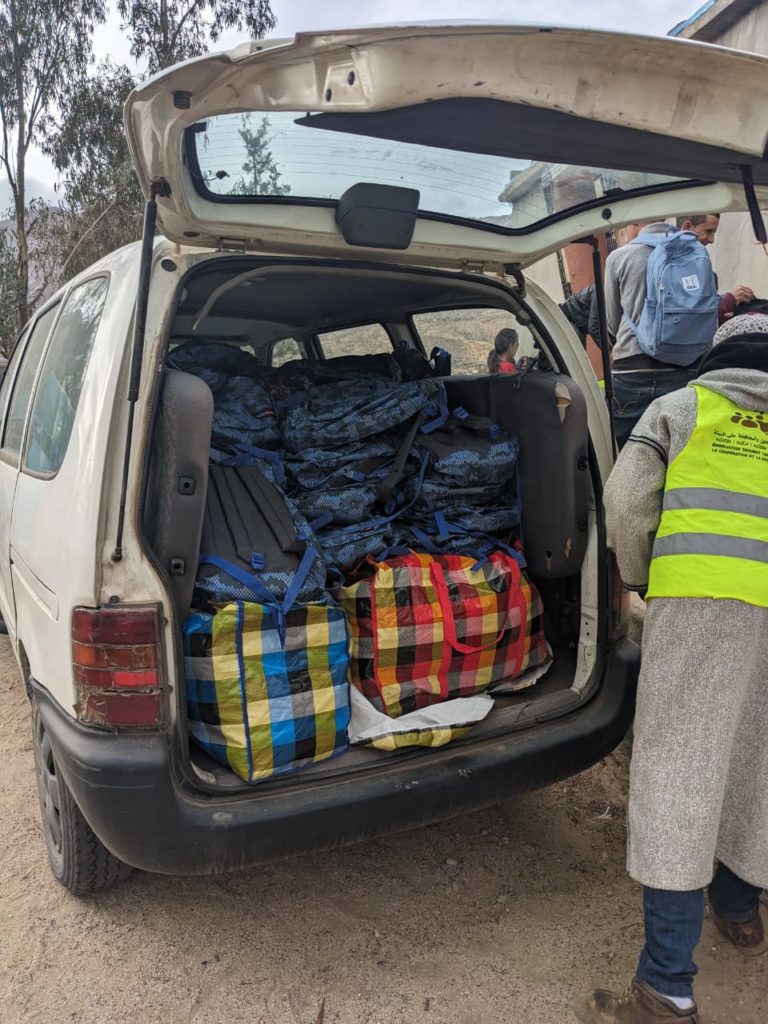
Most recently, we provided 200 backpacks to children affected in these villages.
Each of the packs were filled with the primary school supplies such as notebooks, pencils, colored pencils, and scissors. The kids were overjoyed to receive their backpacks! Our hope is that these items will help bring a sense of normality to their lives and inspire hope and creativity during a difficult time.

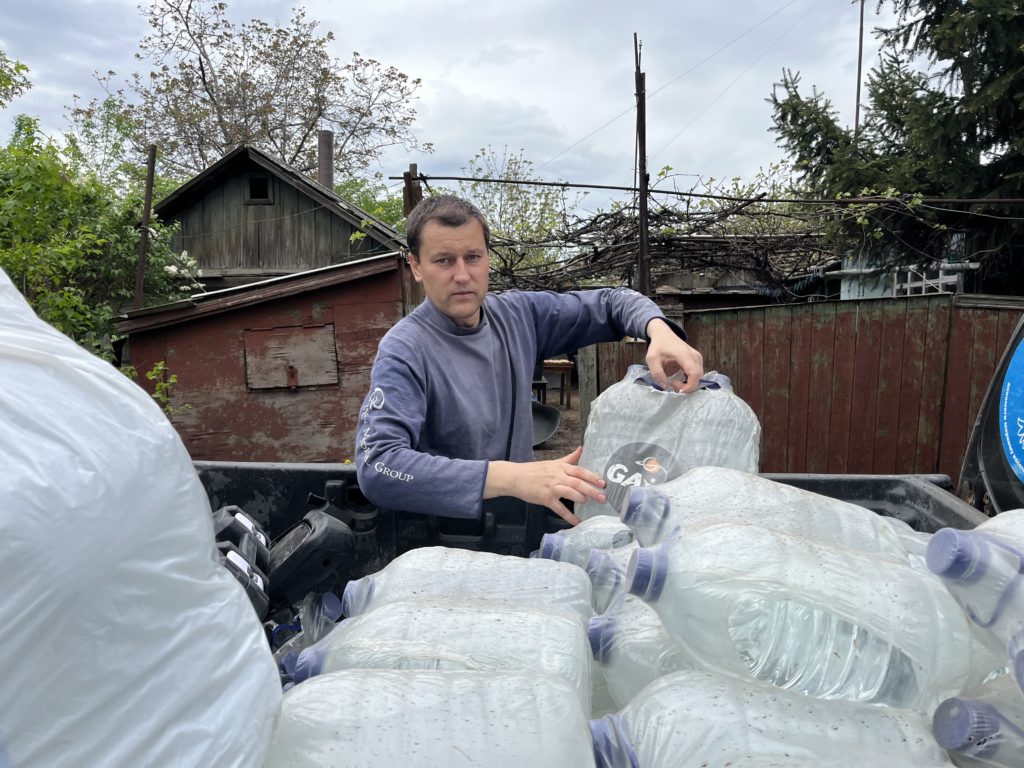
Meet Sergei Buchin! He is the parishioner of a Baptist church and lives with his wife Nadezhda in the remote village of Chasiv Yar, Ukraine. When the war began, Sergei and his wife made a decision, at the risk of their lives, to stay in Chasiv Yar to help others.
Most of the people that live around Sergei and his family are elderly women over 70 years of age. Life in the midst of war-torn Ukraine is incredibly difficult for them, and so Sergei and Nadezhda assist them as much as they can. They deliver water and food to the old women and help to close broken windows and repair their roofs after shelling.
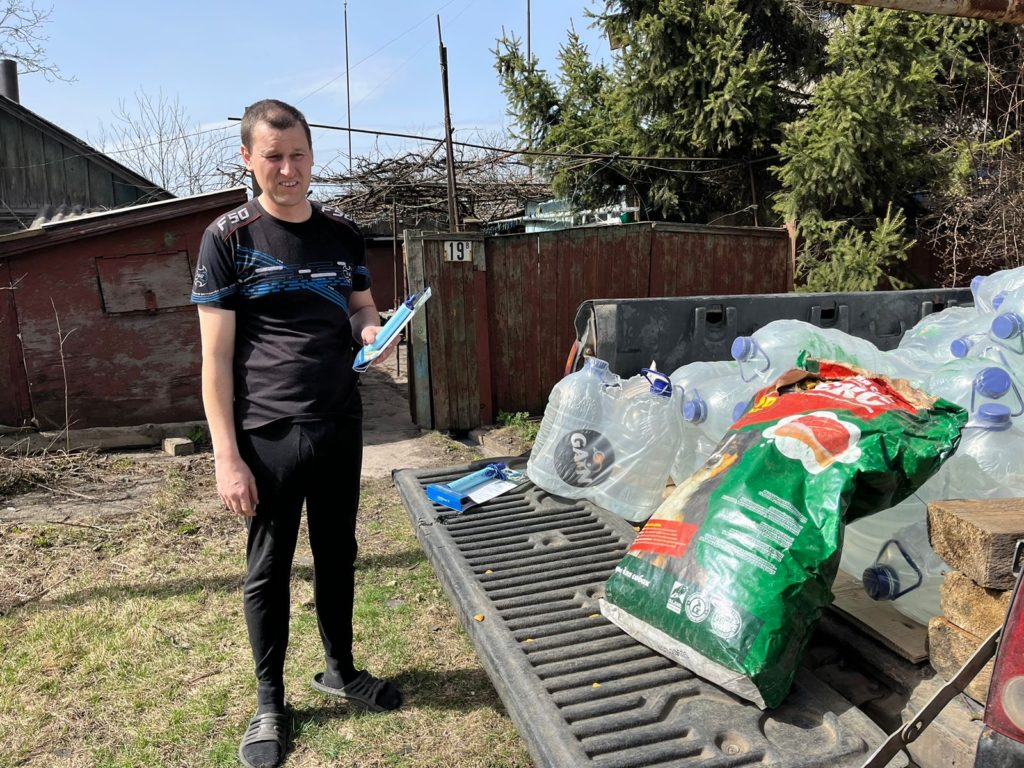
On Sunday, Christians in the community gather at Sergei’s house to pray, socialize and sing psalms, as all the churches were destroyed. Sergei continues to work at his job in the utility company where they unload humanitarian aid, dig graves, bury the dead, watch over power generators, clear the rubble after shelling and repair the rooms where water tanks are located amongst other tasks.
Since Sergei spends a lot of time working and helping other people, he has no time to stand in line to get water. Thankfully, Evgeny, one of our local partners, was able to bring water directly to his house for his family and the elderly neighbours whom he shares his water supply with.
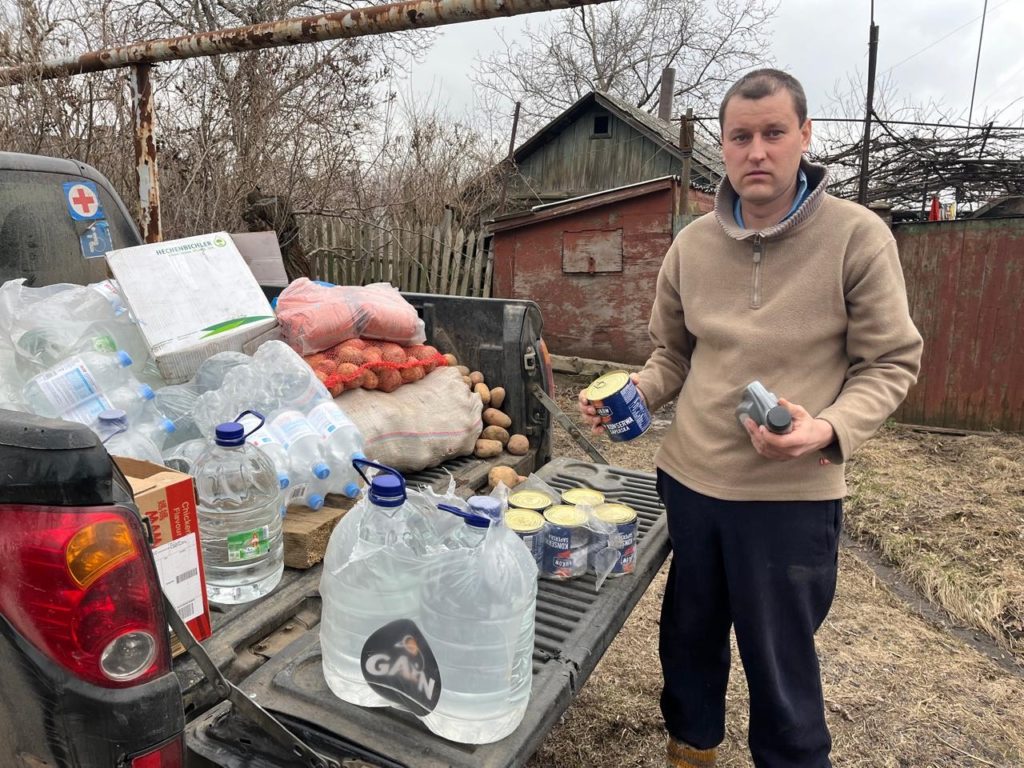
Unfortunately, it is becoming more and more dangerous for Evgeny to drive to Sergei’s place. He reported that during his last visit, an enemy drone flew at him. Thankfully, there was a strong wind and the drone could not aim and flew away.
It is easy to forget that millions of people in Ukraine are facing this sort of reality, where churches are destroyed, water is a scarce resource and enemy drones lurk around the corner. Yet people like Sergei, Nadezhda and Evgeny represent what a loving and generous community can look like in hard times. We are moved by their selfless decision to remain in Chasiv Yar and serve their neighbours, even at a cost to themselves.
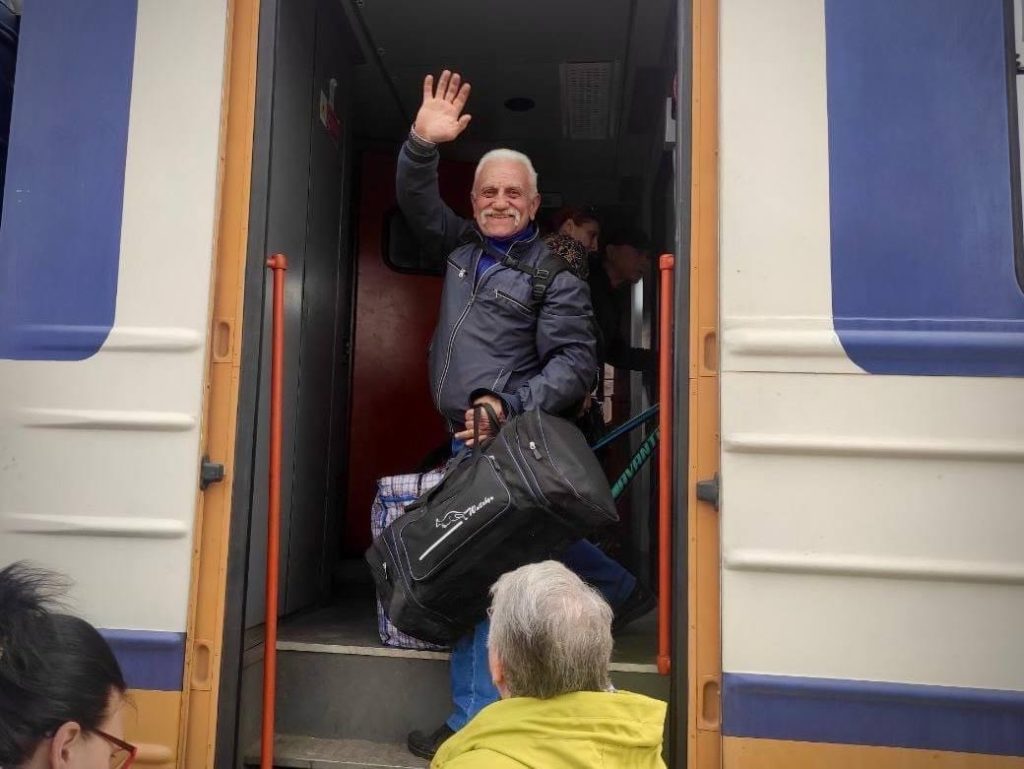
Olexandr Petrovich Bunin is 68 years old and lives in the city of Chasiv Yar, Ukraine. Before he retired, he worked at the local factory as an engineer.
When the Russian invasion began and most of the men left town, Olexandr went to work for the utility company again. Because of his organizational skills and experience working with people, he was appointed as head of the “Point of Indestructibility.” This is a place where the residents of the town can receive humanitarian aid, charge their phones, warm up during winter, eat free food and use the Internet to contact their relatives.
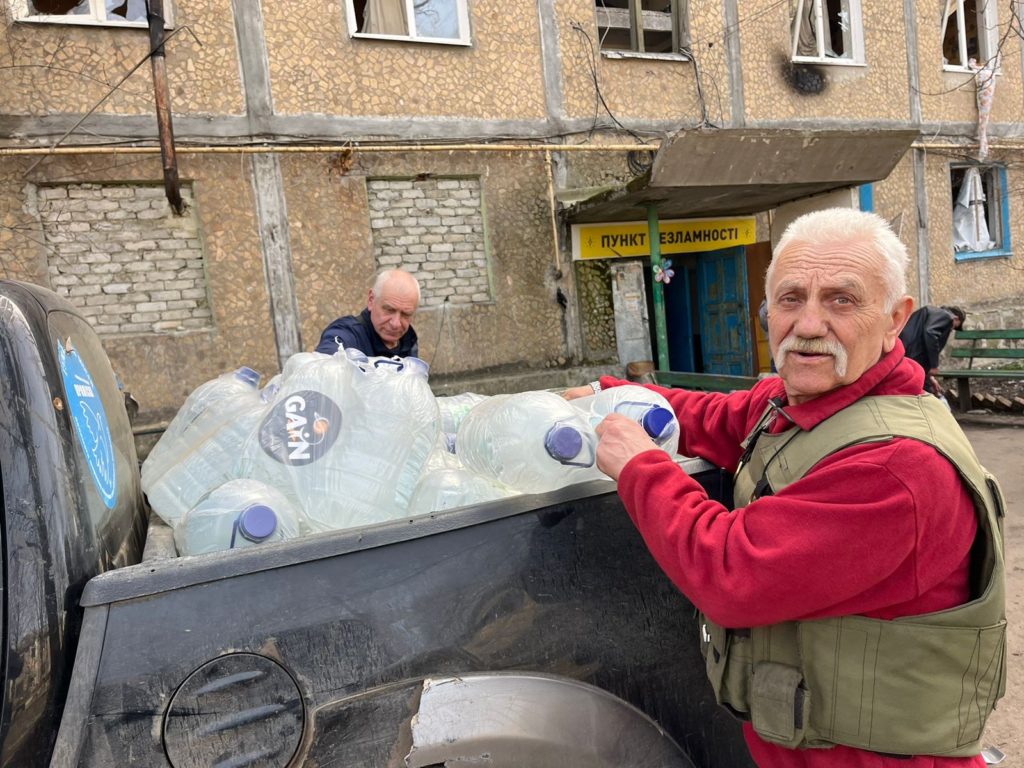
The point was shelled several times, but Olexandr continued to work and organize the distribution of water and food. He kept a small supply of bottled water for emergencies and taught the locals how to use the water filters from GAiN. His wife, Svetlana, stood in the place of medical workers and even learned how to give blood pressure shots to old people.
The couple has children and grandchildren abroad, but chose to stay in the city to help. Only until very recently did they decide to leave the city and visit them.
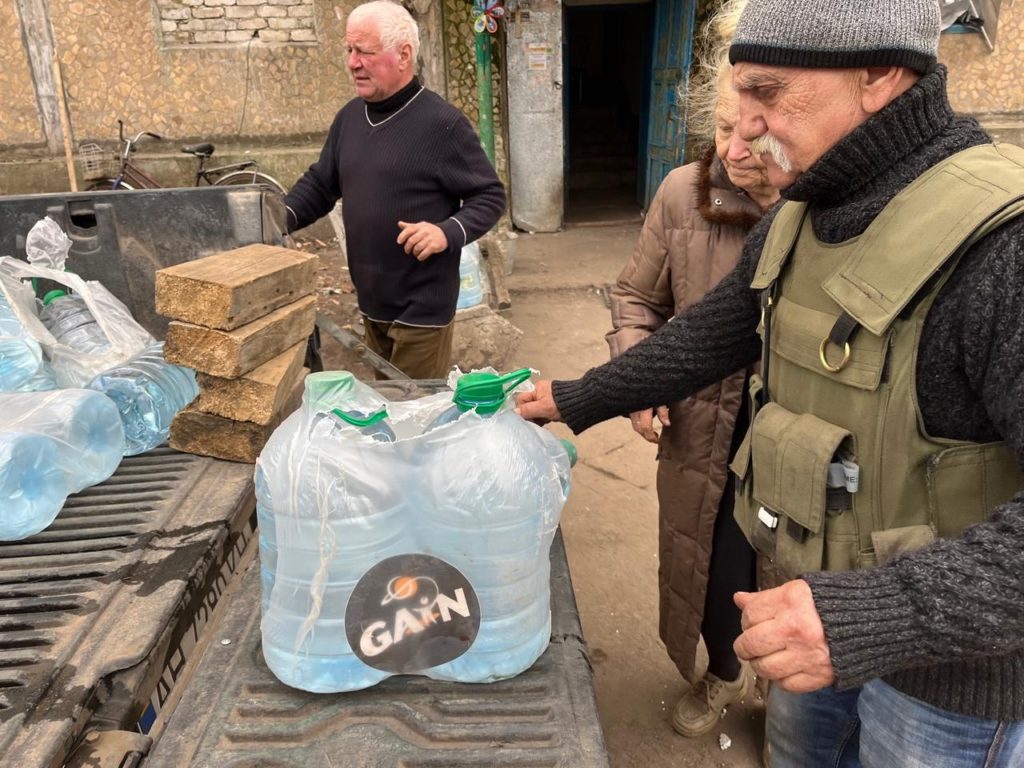
Olexandr and Svetlana have modelled sacrificial, servant hearted love. Despite separation from their loved ones, they made the hard decision to stay where they were to help their neighbours. We are so grateful that they could distribute some of the aid provided by GAiN. Their humble service has not only blessed many with the basics to survive, but has helped keep families connected to each other during an incredibly difficult and isolating time.

Maria Osipchuk is a 79-year-old resident of the village of Borzoa in the Chemihiv region. She spent her entire working life as a teacher at the local elementary school, but is now retired. Even though she poured her entire life into helping and guiding other people’s children, she has no family of her own. In her old age, she feels the sharp absence of family relationships even more prominently.
The war added another layer of hardship onto her. When the conflict began and rockets were frequently being fired, Maria lived in the cellar for almost a month. While sitting there alone, she prayed constantly.
“I asked God to save [my] house and the houses of [my] neighbors,” she shared.
To her delight, God answered her prayer. Her entire street remained unscathed, but on the next street, only 200 meters away, three houses were demolished by one rocket. Maria understands that it was God who helped her. And now she continues to be provided for through the volunteers who periodically bring practical supplies and spiritual help to her small village.
The old lady received food from GAiN and a word of hope from the volunteers. She even joked that God knows she had no teeth and gave her baby puree with meat so she didn’t have to chew.
Maria was inspired by the help she received and felt strengthened in her spirit. We are so thankful for the opportunity we had to hear her story and encourage her that even without a family to call her own, she is not alone.

Through our local partner on the ground, GAiN is providing yellow boxes for displaced people in Ukraine. A single yellow box provides a week’s worth of food for a family, and one box is delivered each week until the family has received four yellow boxes. Our local partner also takes time during each weekly delivery to explain an aspect of the gospel message. They share about hope and God’s love for us personally.
During a recent trip to Kherson, two members of our partner organization, Sasha and Tanya, shared about their experience delivering yellow boxes to communities in need and hearing the stories of war survivors:
“We are driving along the streets and see many houses in the center with windows boarded up with plywood. It looks sad. I remember Irpin, Kyiv, and realize that they are being rebuilt much faster than here. We arrived at the church. We meet the ministers [and] share information [such as] how many people have left, how many new people have come [and] whether there are enough ministers left.
We are greeted by a very hospitable pastor [named] Yuriy. His sense of humor and simplicity help us to feel comfortable quickly. We hear the first stories about the life of the church. A woman tells us about the death of her neighbor who did not make it 20 meters to the house. The pastor recalls the first year. There was a lot of shelling because the airport was nearby. People from the neighboring streets started coming to church on Sundays. During the explosions they continue to have worship services. No one wanted to go home afterwards. They would just turn on the Christian music and people would talk for hours. In this way new people appeared, some of whom were baptized and now go to church regularly. Most of them are older people, families with children left after the intense shelling.
[A woman named] Halyna has a son and husband who both died of cancer and now her second son is ill. She said: “If my son dies, I will be left alone, I have no one else.” It is not only the war that causes suffering which makes [people] afraid and lonely.
[Another woman named] Svitlana said that thanks to the war, she came to church. Svitlana’s face shines because she now feels a great need to know God more. She says that she is sorry when the service ends. She said, “I understand, it’s just that I lived without God for 50 years, and now I can’t get enough.”
[We also met] Natasha, [whose] brother serves in the Armed Forces of Ukraine [and] was surrounded by the enemy. [He got] a concussion but is alive and continues to serve. In the first year, her nephew was killed during the shelling in Mykolaiv when he was standing at a bus stop. That’s [an example of] how the war comes unexpectedly, [killing people and leaving their family members] alive in the middle of hell. [Natasha’s] only daughter recently decided to join the Armed Forces. [When I asked why], she said, “because she believes that now everyone should be able to defend themselves and the country.”
Sasha and Tanya’s encounters with people in Ukraine are a reminder of the horrors and trauma that families are experiencing each day. In the face of these losses, we are so thankful for how people are finding community, support and hope in the Lord.
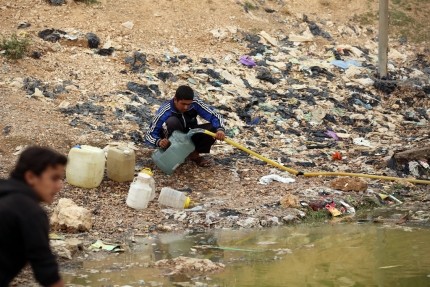
30 October 2017 – The Islamic State of Iraq and the Levant (ISIL or D’aesh) may be largely pushed out of Syria’s Raqqa governorate, but after years of oppression and nearly a year of intense fighting – marked recently by heavy airstrikes – humanitarian needs will continue to be large for some time, the top United Nations relief official told the Security Council Monday.
“Since the beginning of the anti-ISIL offensive in November last year, airstrikes and clashes have resulted in more than 436,000 people being displaced from Raqqa to 60 different locations, including in neighbouring governorates,” UN Emergency Relief Coordinator said briefing the Council via videoconference from Amman, Jordan.
“One conclusion is obvious: the impact of the Syria crisis continues to be profound.”
Expressing deep worry about the impact of fighting and airstrikes on civilians and civilian infrastructure in Raqqa governorate, with scores of civilians reportedly killed in recent months, he said he is also concerned for the safety and protection of civilians at risk from unexploded ordinance throughout Raqqa city, particularly those trying to return to their homes.
“Despite the directive issued by local authorities for civilians not to return to the city until it is deemed safe, the UN anticipates that people will go back to try to check on and protect their homes and their personal assets,” Mr. Lowcock explained.
Further to the east, in Deir Ez-Zor governorate, heavy fighting and airstrikes continue to result in civilian deaths and injuries. Large-scale displacement also continues, with the UN International Organization for Migration (IOM) reporting some 350,000 people displaced since August, including more than 250,000 people in October alone.
As for eastern Ghouta, Mr. Lowcock daily shelling has continued to be reported in recent weeks. Humanitarian access to eastern Ghouta – one of the four de-escalated areas where nearly 95 per cent of Syria’s besieged population lives – has been severely curtailed for months. Since the start of the year 110,000 people have received food assistance, out of an estimated population of nearly 400,000.
“Today the UN and partners delivered food, nutrition and health assistance to 40,000 people, he told the Council, warning however that an alarming number of child malnutrition cases have been recorded there, and more than 400 people with health problems require medical evacuation.
Overall, he said that more than 13 million people inside Syria still need humanitarian assistance. 6.3 million of them are exceptionally vulnerable and in acute need because of displacement, hostilities, and limited access to basic goods and services. “Conflict and violations of international humanitarian law continue to be the principal drivers of humanitarian need, with civilians in many parts of the country enduring massive suffering.”
“Against this background, the UN and our partners continue to implement in Syria one of the largest humanitarian operations in the world,” said Mr. Lowcock who is the UN Under-Secretary-General for Coordination of Humanitarian Affairs, noting, by example that in September, the World Food Programme (WFP) provided food assistance to more than 3.3 million people, the UN Children’s Fund (UNICEF) reached over 1.5 million people, and the World health Organization (WHO) reached over 800,000 people.
He also went on to point out that cross-border assistance provided for in last year’s Council resolution 2165 “has been a lifeline,” allowing the UN to reach millions of people in need in northern and southern parts of Syria. On average, aid was delivered to 2.76 million people a month through cross-border operations between January and August of this year.
“Our experience with cross-line operations from within Syria […] leads us to believe that it would be impossible to reach those people in a sustained manner from within Syria. I therefore regard a renewal of resolution 2165 as essential. Millions of people depend on the activities it mandates,” he underscored.
IF YOU WOULD LIKE TO KNOW HOW GAIN IS INVOLVED, CLICK HERE.
(Source)
(Image Source: UNICEF/UN066040/Souleiman)
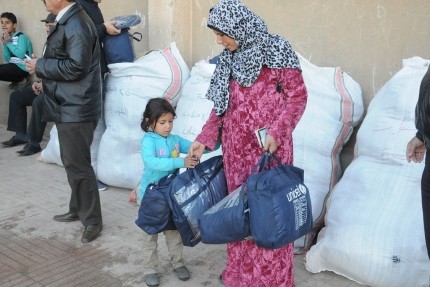
2 February 2016 – With four million Syrian and host community children in need of education and no let-up in sight in the fighting tearing the country apart, the United Nations and its partners are seeking $1.4 billion at a major conference in London on Thursday to save the current youth generation.
“The scale of the crisis for children is growing all the time, which is why there are now such fears that Syria is losing a whole generation of its youth,” said UN Children’s Fund (UNICEF) Regional Director for the Middle East and North Africa, Peter Salama, whose agency is coordinating the ‘No Lost Generation Initiative’.
“As a result of all the work being done by partners and donors, education and protection for children are now being prioritized. But what we must see in London is the step-change necessary to bring all children back to learning; to protect those who are at risk of dropping out; expand safe and inclusive learning environments; recruit and train more teachers; improve the quality of education, and support the development of technical, vocational and life skills opportunities for youth.”
The London conference is being co-hosted by Britain, Germany, Kuwait and Norway, and leaders from more than 30 countries are expected to attend, with the aim of raising new funding to meet the immediate and longer-term needs of those affected by the crisis.
Nearly five years into the Syrian war, some four million Syrian and host community children and youth aged 5-17 years are in need of education assistance, including 2.1 million out-of-school children inside Syria and 700,000 Syrian children in Turkey, Lebanon, Jordan, Iraq and Egypt.
Last year, the combined efforts of Governments and international partners helped more than one million children and youth inside Syria benefit from formal or non-formal learning opportunities. But with no political solution in sight to one of the most brutal conflicts the world has seen in decades, the number of children missing out on an education continues to climb.
Governments at the London meeting will also be urged to put more pressure on parties to the Syria conflict and those who support them to end attacks on schools and other places of learning, in accordance with international humanitarian law.
According to UNICEF, the killing, abduction and arrest of students and teachers has become commonplace, as have arbitrary attacks on schools. About one in four schools cannot be used because they have been damaged, destroyed or are being used as shelters for the internally displaced or for military purposes.
The No Lost Generation Initiative was set up in 2013. By the end of 2015 1.2 million children and youth inside Syria benefitted from improved formal and non-formal learning opportunities and more than 650,788 in Egypt, Iraq, Jordan, Lebanon and Turkey received school supplies or support through cash grants.
GAIN IS COMMITTED TO HELPING 1,000 FAMILIES WITHIN SYRIA. OUR HEARTS BREAK WITH THE DAILY REALITY MANY OF THESE CHILDREN AND THEIR FAMILIES ARE EXPERIENCING.
IF YOU WOULD LIKE TO READ MORE ABOUT OUR WORK, CLICK HERE.
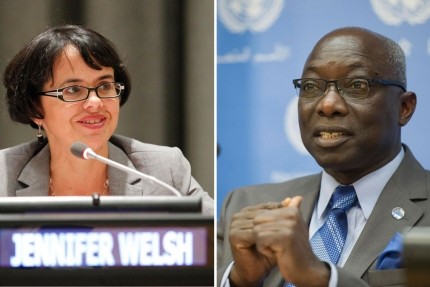
13 October 2015 – Senior United Nations human rights officials today expressed their alarm at the rise in violent rhetoric by influential religious leaders – including calls for “holy war” against certain faiths – in relation to the situation in Syria.
The UN Secretary-General’s Special Adviser on the Prevention of Genocide, Adama Dieng, and Special Adviser on the Responsibility to Protect, Jennifer Welsh, condemned the recent call by clerics in Saudi Arabia for Sunni Muslims and their States to support a “holy war” against Shia Muslims and Christians in Syria, as well as against States and non-State armed groups perceived to support them.
“Such rhetoric can aggravate the already extremely volatile situation in Syria by drawing religiously motivated fighters to join all parties to the conflict, thus escalating the risk of violence against religious communities,” said the Advisers in a statement, adding that “advocacy of religious hatred to incite or justify violence is not only morally wrong, but also prohibited under international law.”
Mr. Dieng and Ms. Welsh also expressed concern at reports that Russian Orthodox clerics had referred to the Russian participation in the conflict in Syria as a “holy battle” against terrorism, as “statements of this kind can be manipulated, feed suspicion and increase polarization of communities.”
The Special Advisers also noted the response by Russian authorities, who reportedly denied that there was any religious connotation to their involvement in Syria.
They praised the organization Syrian Christians for Peace for rejecting the concept of a Christian “holy war” and condemning those who invoke it.
The Special Advisers called on States to dissociate themselves from and condemn any form of advocacy of religious hatred, promote dialogue and protect and empower all those religious figures and human rights defenders who are working towards enhancing interreligious respect and harmony.
The officials also called on religious leaders around the world to refrain from any form of advocacy of religious hatred and incitement to violence, and to counter any use of such rhetoric, emphasizing that “religious leaders should be messengers of peace, not of war.”
“In situations in which tensions are high, as in Syria, religious leaders should call for and foster restraint and dialogue, rather than fanning the flames of hatred,” they cautioned.
If you want to read more about how GAiN is working in Syria, click here.
(Article Source)
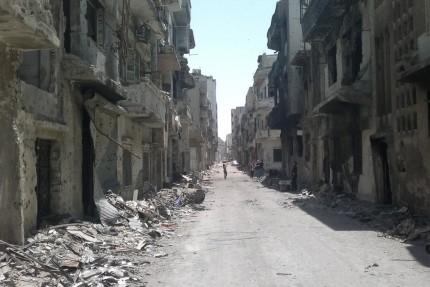
16 September 2015 – The United Nations humanitarian chief today urged the Security Council to find a political solution to end the conflict in Syria, warning its members that the fighting had created one of the largest refugee exoduses since the Second World War.
“It is civilians who continue to bear the brunt of this war,” Under-Secretary-General for Humanitarian Affairs and UN Emergency Relief Coordinator Stephen O’Brien told the Council, appealing to the 15-member body to find “a political settlement that brings an end to the crisis.”
Mr. O’Brien noted that, 18 months after the Security Council adopted resolution 2139, its demands to allow unhindered humanitarian access to the country had gone unheeded, and there had been no reduction in the appalling patterns of human rights violations.
Government forces, he said, had repeatedly attacked residential areas during between 17 and 26 August. During the last week of August, non-State armed groups had launched hundreds of shells, killing at least 20 civilians.
He warned of a “deliberate targeting of civilian infrastructure,” including water and electricity networks, as well as schools and medical facilities.
In 2014, he said, some 169 reported attacks on medical facilities occurred, and 259 medical worked were killed. Additionally, since the start of 2014, the UN has verified at least 84 attacks on or near schools.
“Today, Syria is one of the most dangerous places on earth to be a child,” said Mr. O’Brien, noting that over two million children are not in school and a further 450,000 are at risk of dropping out. He also expressed his concern that, in areas controlled by the Islamic State of Iraq and the Levant (ISIL), schools were using a curriculum designed by the terrorist group.
He also outlined the current state of humanitarian aid delivery in Syria, warning that the UN and non-governmental partners were still unable to deliver sufficient quantities of aid to the hardest-to-reach areas of the country.
Lack of funding, said Mr. O’Brien, continued to be a major challenge, and that $738 million was needed to fund essential life-saving operations until the end of 2015.
The Under-Secretary-General called on members of the Security Council to do more to demand an end to indiscriminate violence in Syria, and to ensure that humanitarian assistance is able to reach all areas of the county. Above all, he said, the Council should find a political solution to “end this nightmare” for the Syrian people.
GAIN IS PROVIDING AID TO SYRIANS WHO ARE DISPLACED WITHIN THEIR OWN COUNTRY. CLICK HERE IF YOU WOULD LIKE TO KNOW OUR RELIEF EFFORTS.
(Article Source)

